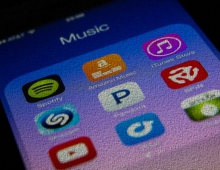
TikTok to Launch Transparency Center for Moderation and Data Practices
Social media app TikTok is launching a content moderation center in a bid to boost transparency, the Chinese company said on Wednesday, as it faces scrutiny from U.S. lawmakers over users' data.
The TikTok Transparency Center is a new facility in TikTok's LA office that will provide outside experts an opportunity to directly view how the teams at TikTok go about the day-to-day work of moderating content on the platform.
Experts will get a chance to evaluate TikTok's moderation systems, processes and policies in a holistic manner. That includes, but is not limited to, seeing:
- how TikTok's trained content moderators apply those Guidelines to review the technology-based actions that are escalated to them, and to identify additional potential violations that the technology may miss;
- how users and creators are able to bring concerns to TikTok's attention and how those are handled;
- ultimately, how the content that is allowed on the platform aligns with TikTok's Guidelines.
TikTok expects the Transparency Center to operate as a forum where observers will be able to provide feedback on the company's practices.
The Transparency Center will open in early May with an initial focus on TikTok's content moderation. Later, TikTok will expand the Center to include insight into its source code, and the company's efforts around data privacy and security. This second phase of the initiative will be spearheaded by TikTok's newly appointed Chief Information Security Officer, Roland Cloutier, who starts with the company next month.
TikTok, owned by Chinese tech company ByteDance, allows users to create and share short videos with special effects, and is hugely popular in Southeast Asia, including India.
Several U.S. agencies that deal with national security and intelligence issues have banned employees from using the TikTok app, whose popularity among teenagers has been growing rapidly.
According to a 2017 Chinese law, companies operating in the country are required to cooperate with the government on national intelligence.
The U.S. Navy banned the app in December from its government issued mobile devices, calling it a “cybersecurity threat”.


















